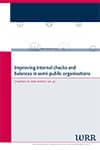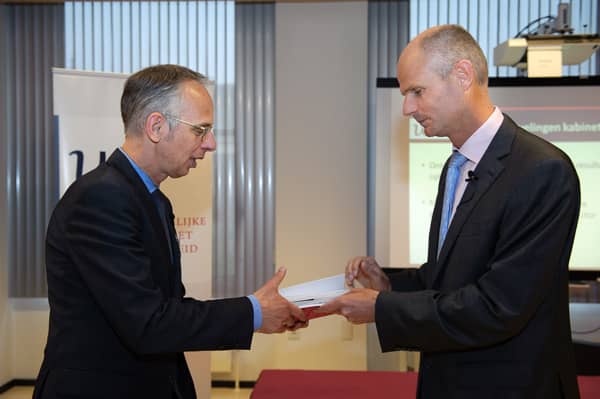Any number of civil-society organisations in the Netherlands have been in the public spotlight in recent years, such as the housing associations Vestia and Woonbron, education establishments such as Amarantis and InHolland and care institutions such as Meavita and Slotervaart hospital. The underlying problem with some of these civil-society organisations was that their administrators received too little feedback from the organisation and lost sight of their original aims. Many civil-society organisations have become alienated from their natural followers, hived off from the state but never truly entering the market place. This applies for housing associations, key secondary, further and higher education establishments, hospitals and care institutions, as well as broadcasters and other cultural institutions, such as museums.
Diffuse ownership
The ownership of this public arena is diffuse, and many institutions have in some senses become 'orphaned'. At one time, they were membership organisations in which the administrators had to render account to general meetings of members. Many associations have now taken on the legal form of foundations in which administrators receive little feedback from the organisation. Supervisory boards are not infrequently co-opted and are often quite remote. There is no discipline imposed by the market, because clients have very limited exit options and because there is no accountability via shareholder constructions. This incomplete 'privatisation' means that many of these organisations currently operate within an internal accountability vacuum.
Internal checks and balances
The central question addressed in this WRR project is: Which internal checks and balances are practicable and appropriate for civil-society organisations that are funded from public resources, and what are the social and organisational frameworks within which they operate? The primary focus of the research is on foundations and associations with a public interest and with a primary (public) remit (housing, care, education, culture). We look at Internet accountability fora such as members, users, employees, internal supervisors, owners, and at how this can provide feedback to administrators. What experiences have been gained to date with these accountability fora in the different sectors? And what innovations offer promise in improving the functioning of internal checks and balances and increasing their applicability?
Publication
The WRR presented the Report Van tweeluik naar driehoeken (Improving internal checks and Balances in semi-public organisations) on the 27th of May to the minister of Housing and Public Administration.

Image: © WRR
Semi-public organisations need a better system of internal dissent and contradiction. Good internal checks and balances are essential for this, the WRR argues in this report.
News
Government reaction to WRR reports 'Supervising public interests' and 'From diptych to triangles'
The Cabinet has put forward seven proposals to improve government supervision following the publication of two WRR reports.
Read more
Internal checks and balances in semi-public organisations
The WRR presents its advisory report ‘From diptych to triangles. Strengthening internal checks and balances in semi-public ...
Read more
